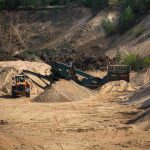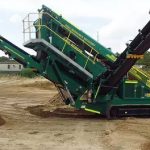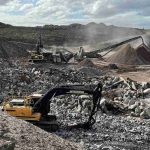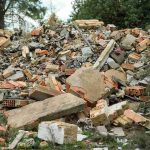Crushing and screening are fundamental processes in the field of resource recovery and recycling. These two methods, often working hand in hand, play an essential role in reducing construction waste, producing reusable aggregates, and creating environmentally responsible solutions for a growing world. As industries and communities aim for sustainability, the demand for efficient crushing and screening services has increased significantly.
At Peel Resource Recovery, crushing and screening operations are more than just industrial processes. They are key elements in an integrated waste management approach, designed to minimize environmental impact while maximizing resource reuse. By transforming what would otherwise be discarded into valuable materials, these processes not only protect the environment but also contribute to the circular economy.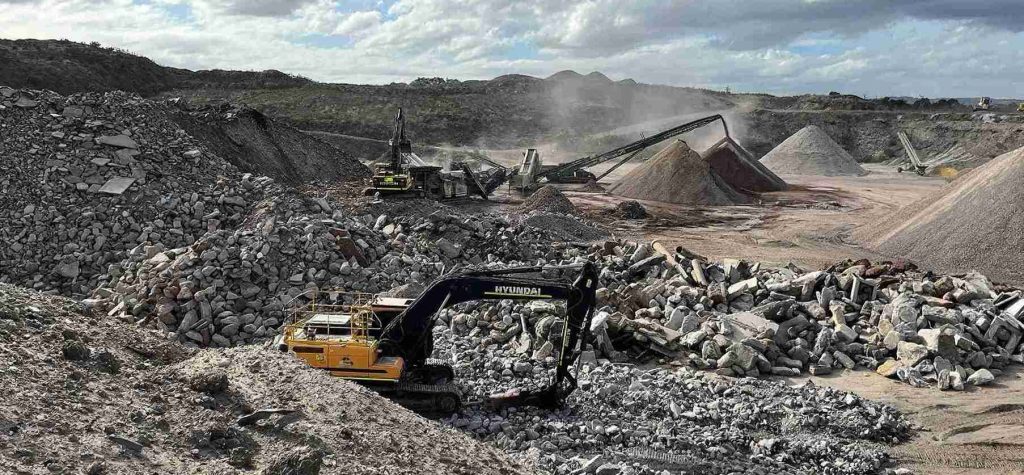
Understanding the Basics of Crushing and Screening
To fully appreciate their impact, it is important to understand the two processes individually:
Crushing
Crushing involves breaking down large chunks of construction and demolition waste—such as concrete, bricks, asphalt, and rocks—into smaller, manageable sizes. This is achieved using heavy-duty machines such as jaw crushers, cone crushers, and impact crushers. The primary goal is to reduce the material to a size that can be reused or processed further.Screening
Screening is the process of separating crushed materials into specific size categories. By using vibrating screens and sorting systems, different grades of aggregate are produced. These can then be used in road base, concrete production, landscaping, or other construction projects.
When combined, crushing and screening create a streamlined pathway for converting waste into valuable resources that can re-enter the market.
Why Crushing and Screening Are Vital for Recycling
The importance of crushing and screening lies in their ability to tackle some of the most pressing waste management challenges:
Waste Reduction
Construction and demolition waste represent a significant portion of landfill volumes. By processing this material, the burden on landfills is reduced.Resource Recovery
Instead of extracting new raw materials, recycled aggregates offer an eco-friendly alternative. This reduces the demand for quarrying and mining.Cost Efficiency
Reusing materials from construction waste lowers overall project costs. Transport and disposal fees are minimized, and the recycled materials themselves can be a valuable asset.Sustainability
Crushing and screening contribute directly to reducing carbon footprints by promoting reuse and lowering emissions linked to resource extraction.
Governments worldwide, including in Australia, are encouraging such practices. For example, the Australian Government Department of Climate Change, Energy, the Environment and Water supports initiatives aimed at reducing landfill dependency and boosting recycling innovation.
Advanced Techniques in Crushing and Screening
The evolution of technology has brought forward advanced methods that improve efficiency and outcomes in these processes:
Mobile Crushing Units
Portable crushing units allow for on-site processing, reducing the need to transport bulky waste materials long distances. This not only saves costs but also cuts down on emissions from heavy transport.Multi-Stage Screening
Modern screening systems provide more precise grading, ensuring the final aggregates meet the highest quality standards. This level of control makes recycled materials viable substitutes for natural resources.Automation and Digital Monitoring
Smart systems and digital monitoring enhance the productivity of crushing and screening equipment. With real-time data, operators can adjust processes to achieve better performance and efficiency.Dust Suppression Systems
Environmental concerns, particularly air quality, are addressed with dust suppression technology that minimizes the impact of crushing activities on surrounding areas.
Applications of Recycled Materials
The crushed and screened materials produced through these processes have widespread applications across industries:
Construction Aggregates
Recycled concrete and asphalt can be used as road base, sub-base, and even in new concrete mixes.Landscaping
Screened soil, gravel, and stone fragments are ideal for landscaping projects, providing both durability and aesthetic appeal.Infrastructure Projects
Municipalities often use recycled aggregates in public works, such as road repairs, drainage systems, and embankments.Sustainable Architecture
As green building practices become standard, recycled aggregates play an increasing role in eco-conscious designs.
Environmental Benefits
The environmental advantages of crushing and screening are substantial:
Reduced Landfill Pressure
By diverting large volumes of construction waste from landfills, space is preserved and environmental risks are minimized.Lower Carbon Emissions
Recycling reduces the need for quarrying, which is energy-intensive and emission-heavy.Biodiversity Protection
Less demand for new raw materials means reduced disruption of natural landscapes and ecosystems.Contribution to Circular Economy
Instead of being discarded, materials are reintegrated into the economy, closing the loop between consumption and reuse.
Crushing and Screening in the Australian Context
Australia generates millions of tonnes of construction and demolition waste each year. With strict regulations and increasing awareness of environmental impacts, businesses and local governments are turning to sustainable solutions.
Peel Resource Recovery plays a crucial role in this transformation. By offering reliable crushing and screening services, the company ensures that waste from construction and industrial activities does not go to waste. Instead, it becomes a resource that can be reinvested into new projects.
The company’s commitment to sustainability aligns with national waste reduction goals and helps businesses meet compliance standards while lowering operational costs.
Choosing the Right Crushing and Screening Partner
Selecting the right service provider is essential for achieving maximum benefits from these processes. Key considerations include:
- Experience and Expertise – A knowledgeable partner ensures that materials are processed to the highest standards.
- Technology and Equipment – Advanced machinery leads to better efficiency and quality.
- Sustainability Commitment – Providers aligned with environmental goals offer long-term value.
- Compliance and Safety – Adherence to regulations ensures smooth operations without legal risks.
Peel Resource Recovery meets these requirements by combining expertise, advanced equipment, and a commitment to environmentally friendly practices.
Conclusion
Crushing and screening are more than industrial processes—they are essential tools in building a sustainable future. By reducing waste, recovering valuable resources, and supporting eco-friendly construction, these practices help communities and industries align with global sustainability goals.
For businesses and contractors seeking reliable crushing and screening services, Peel Resource Recovery stands out as a trusted partner. With a dedication to innovation, compliance, and sustainability, the company ensures that construction waste is not an end point but a starting point for new opportunities.


